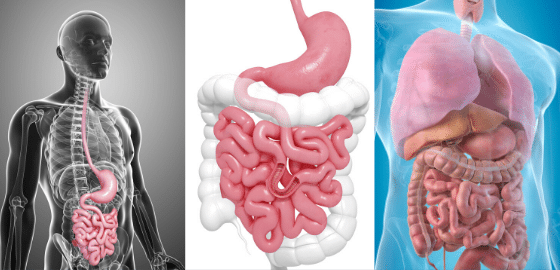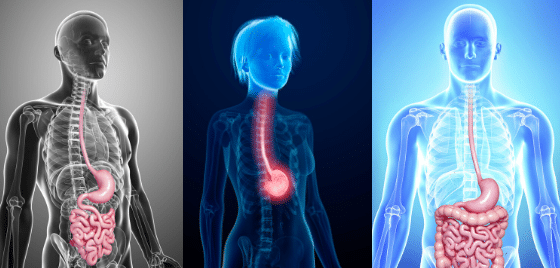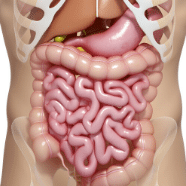Why Did My Doctor Recommend Breath Testing?
Has your doctor recommended breath testing in order to get to the root of your digestive symptoms?
Before we dive into the specifics of breath tests, it’s important to understand that there are several different types of breath tests. Your doctor may use breath testing to find out if your body has trouble breaking down and absorbing certain types of sugars. Or your doctor may order a breath test to check for small intestinal bacterial overgrowth (SIBO).
What is a breath test?
When certain types of carbohydrates reach your colon (AKA large intestine), they are fermented (broken down) by your intestinal bacteria and gas is produced. This gas can actually be collected by breathing into a bag. Your doctor may order a breath test for hydrogen gas, methane gas, or both.
The concentration of gas is then measured and used to diagnose malabsorption of sugars such as lactose or fructose. Breath testing can also be used to look for SIBO (small intestinal bacterial overgrowth).
What can I expect from a breath test?
To prepare for the breath test, your doctor may instruct you to stop certain supplements (like probiotics) and may ask you to eat a simple diet leading up to the test. It’s important that you follow your doctor’s instruction in preparation for the test.
At the beginning of the test, a baseline reading is taken by breathing into a collection bag. Next, you will drink a liquid containing a test sugar. The sugar you drink depends upon the type of test your doctor has ordered. Only one sugar can be tested at a time and each test must be separated by at least a few days.
During the test, you will breath into a test bag every 15-30 minutes over a period of 2-3 hours. The results will then be analyzed by your doctor.
Breath tests for fructose and lactose malabsorption
Sugars such as lactose and fructose are poorly absorbed by some people and when they reach the large intestine, they are fermented to produce a larger amount of gas than normal. The increased gas production is thought to contribute to digestive symptoms by causing a bloating sensation, drawing water into the intestines, and slowing down the movement of food through the gut.
A breath test can be used to find out if you are able to properly absorb fructose and lactose. As mentioned above, you will breathe into a collection bag at set intervals and the hydrogen gas will be measured. The levels of hydrogen gas will then be compared to your baseline level of hydrogen. Your doctor will look for a large increase in hydrogen gas in order to determine if you are poorly absorbing the sugar that was tested.
While breath testing is one way to evaluate someone for lactose and fructose intolerance, doing an elimination diet with a registered dietitian can be an alternative way to help you determine your intolerances.
SIBO breath testing
Small intestinal bacterial overgrowth (SIBO) occurs when there is an excess of bacteria in the small intestine. We have a diverse population of microbes living in our large intestine, but we don’t want to have high levels of microorganisms in our small intestine.
SIBO can lead to digestive symptoms such as bloating, diarrhea, constipation, nausea, and abdominal pain.
A breath test using glucose or lactulose (not be confused with lactose) as the test sugar that you drink can help diagnose SIBO. If there are bacteria present in the small intestine, those bacteria will produce gas during the test. Your doctor will then review the results to determine if you may have SIBO and will advise on a treatment plan.
If your doctor has recommended a breath test, you may want to ask them for more information so you can understand what they are looking for. You should also discuss what you need to do to prepare for the test to make sure you will get accurate results.
 Katelyn Collins, RD is a registered dietitian and health writer specializing in digestive health. Katelyn’s personal experience with a digestive condition first sparked her passion for nutrition and health. Since then, she has been a vocal advocate for the digestive health community and has dedicated her own nutrition practice to serving those with digestive conditions.
Katelyn Collins, RD is a registered dietitian and health writer specializing in digestive health. Katelyn’s personal experience with a digestive condition first sparked her passion for nutrition and health. Since then, she has been a vocal advocate for the digestive health community and has dedicated her own nutrition practice to serving those with digestive conditions.
Listen to our
latest Podcast!






